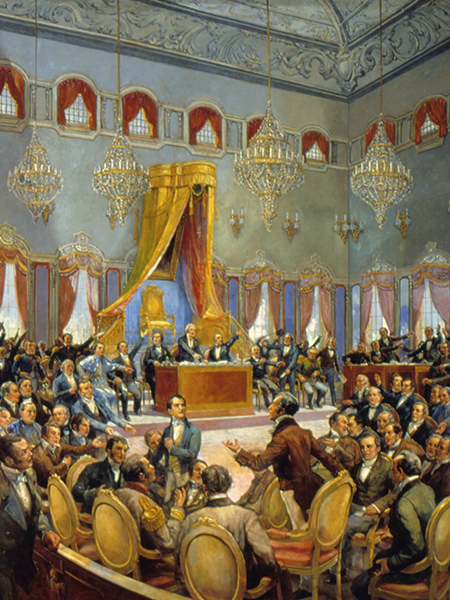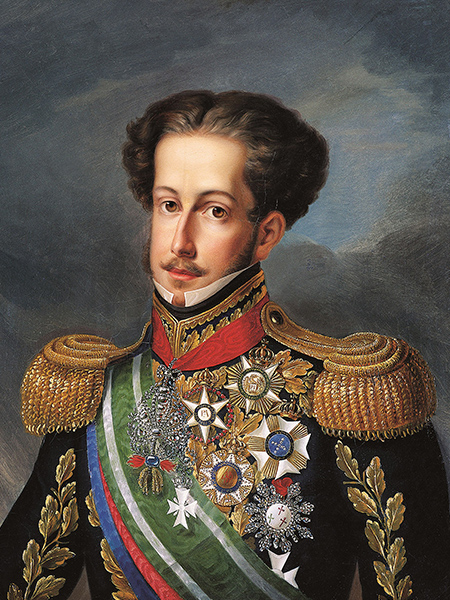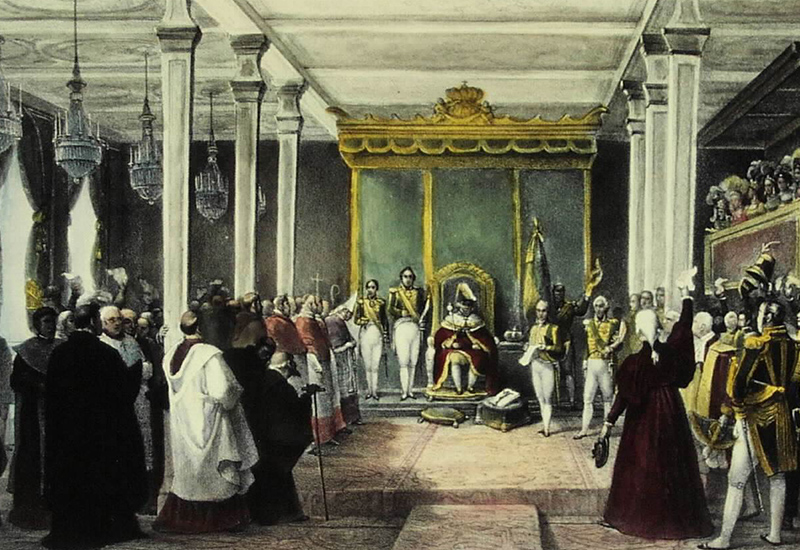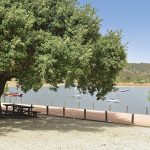The kingdom barely lasted ten years but the implications still resonate today.
When Napoleonic forces invaded Portugal in 1807, the Portuguese royal family took refuge in Brazil. This move set in motion a series of events that would lead to the establishment of the United Kingdom of Portugal, Brazil and the Algarves and, before too long, the formation of an independent Brazil, free from Portugal’s colonial rule.
With Portugal under attack from French forces, approximately 10,000 people evacuated the country and set sail for Brazil, the most notable amongst them being the Portuguese Prince Regent (the future King John VI) and his ailing mother, Queen Maria. The arrival of the royal court in Brazil and the transfer of power it represented was unprecedented. It was the catalyst for increased investment in Brazil and a heightened profile in global affairs. It also fuelled a growing desire for home rule.


Back in Portugal, certain sections of society felt it unwise for the country to be ruled from a colony and were fearful that Brazil would one day seek its independence. This heady combination of events and political manoeuvrings led to King John VI – who was still based in Brazil at the time – enacting legislation which elevated the status of Brazil from a colony to a kingdom. In theory, at least, this made Brazil an equal partner with Portugal. In 1815, the United Kingdom of Portugal, Brazil and the Algarves was established.
In 1820, what became known as the Liberal Revolution took place and with it was a call for the royal court to return to Portugal and for greater control to be exerted over Brazil. The following year, King John VI returned to Lisbon, but he did so without his heir apparent, Prince Pedro, to whom he granted extra powers and the title of Regent of Brazil.
The drive for independence persisted, however and, with King John VI wrestling with domestic and international challenges, Prince Pedro declared Brazil an independent state in 1822. Did this lead to friction between Prince Pedro and his father? Prince Pedro’s love for Portugal and his father seems to have never abated. As for King John VI, he was resigned to Brazil gaining independence and took the pragmatic approach that it would be better if it happened under the leadership of his family rather than by any other means.
Prince Pedro’s declaration of independence brought about an end to the short-lived United Kingdom of Portugal, Brazil and the Algarves. Nevertheless, it wasn’t until 1825 that the formal dissolution of the kingdom was enacted, thereby paving the way for a new relationship between the two countries, which would eventually flourish into the one we know today.
Timeline
- 1907: Invasion of Portugal by Napoleonic forces
- 1808: The Portuguese royal court arrives in Brazil
- 1815: The United Kingdom of Portugal, Brazil and the Algarves is established
- 1820: Liberal Revolution
- 1821: The Portuguese royal court returns to Portugal
- 1822: Brazil declares independence
- 1825: The United Kingdom is dissolved
The ‘Kingdom of the Algarves’ was a nominal kingdom within the Kingdom of Portugal. It had no institutions, special privileges, or autonomy; rather it was an honorific title to reflect the region’s importance.
Main Image: The acclamation of King Dom João VI of the United Kingdom of Portugal, Brazil and the Algarves Debret, Jean Baptiste, 1768-1848, Public domain, via Wikimedia Commons













